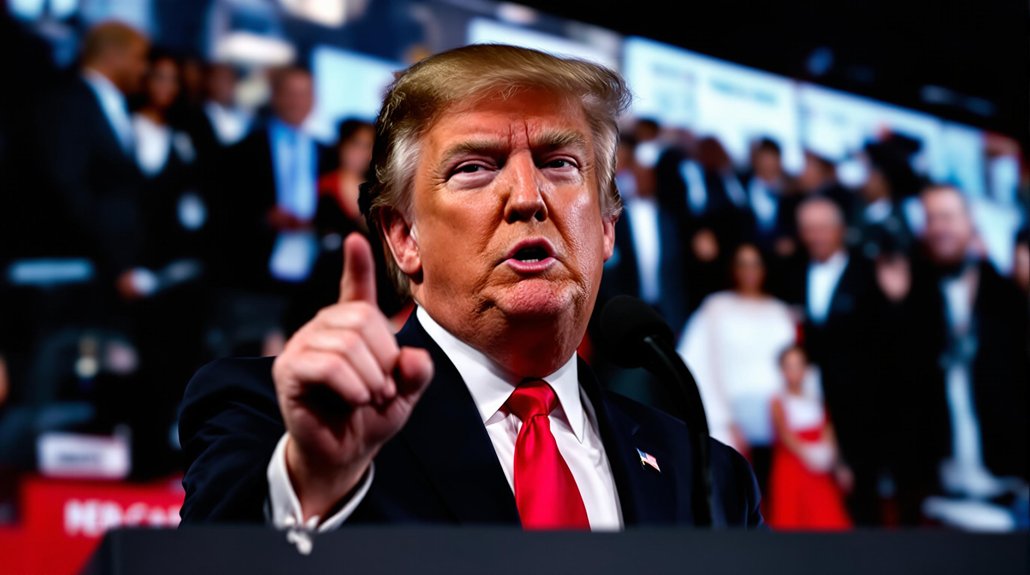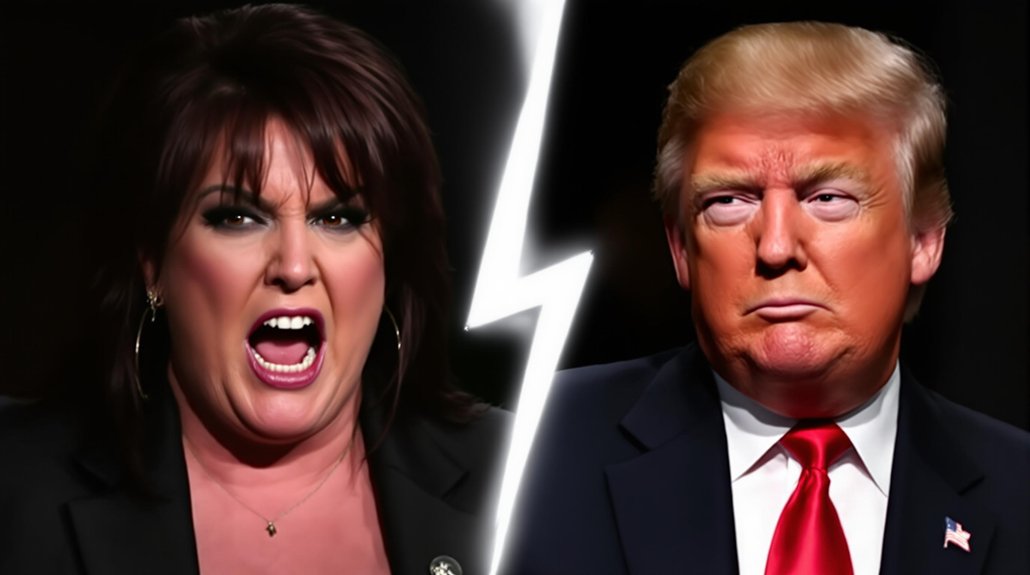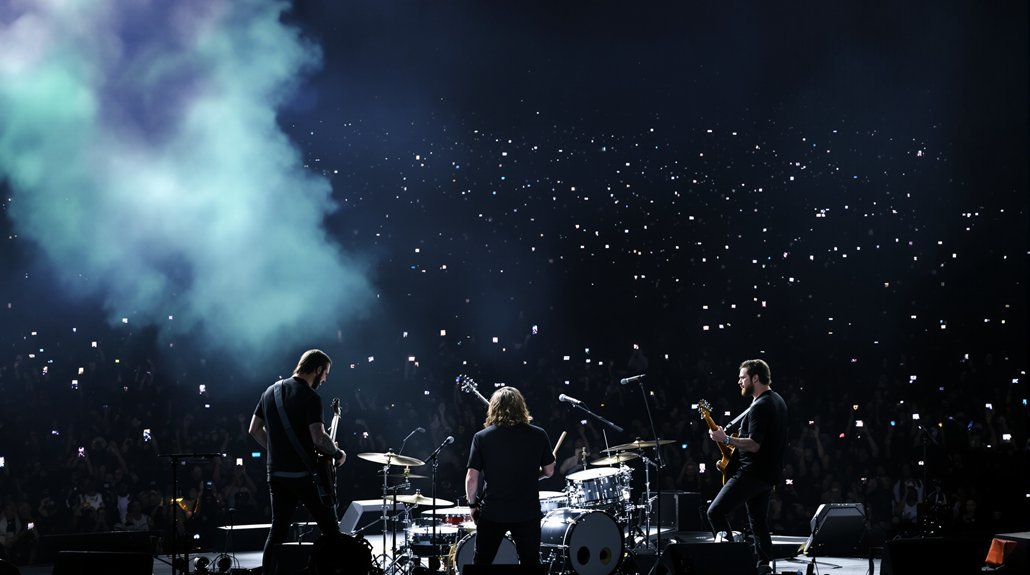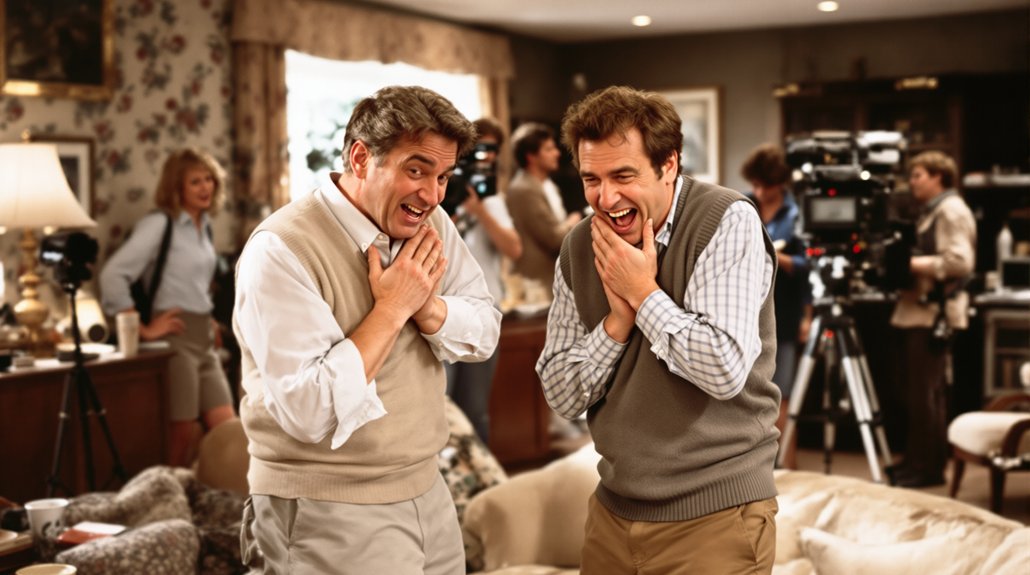Former President Donald Trump demanded criminal prosecution of Vice President Kamala Harris during a July 27, 2025 campaign rally in Phoenix, Arizona, alleging her involvement in an unspecified “celebrity endorsement scheme.” Trump provided no evidence of specific legal violations, while Democrats condemned the accusations as politically motivated. Legal observers noted that celebrity endorsements are typically protected political speech, and constitutional scholars emphasized due process requirements. The incident intensified political tensions ahead of upcoming elections, with analysts suggesting broader implications await exploration.
During a campaign rally in Phoenix, Arizona on July 27, 2025, former President Donald Trump publicly demanded the criminal prosecution of Vice President Kamala Harris, declaring she was “not above the law” while accusing her of unspecified legal violations centered around what he termed a “celebrity endorsement scheme.”
The announcement, made before an enthusiastic crowd of supporters, marked another escalation in Trump’s rhetoric targeting prominent Democratic figures as he positions himself for the 2026 midterm election cycle.
Trump’s allegations lacked specific citations of statutes or legal codes that Harris allegedly violated, focusing instead on purported involvement in the celebrity endorsement scheme while linking her actions to broader claims about criminality within Democratic leadership.
The former president offered no concrete legal framework for his accusations, relying instead on vague references to alleged Democratic misconduct.
The former president made these statements while criticizing other high-profile public figures for their political endorsements, though he provided no detailed supporting evidence during the speech.
The rally crowd responded with vocal approval and applause, while the announcement immediately triggered widespread national media coverage and political discourse across multiple platforms.
Democrats quickly denounced the move as politically motivated, while online platforms including X saw viral debates and satirical commentary regarding Trump’s demands.
Legal observers noted the absence of public evidence supporting the criminal allegations, emphasizing that celebrity endorsements typically constitute protected political speech and rarely involve criminal activity.
Constitutional scholars referenced due process importance in any potential prosecution, while multiple commentators questioned the legitimacy and legal substance of Trump’s accusations.
No federal charges or investigations against Harris connected to these claims have been formally announced as of July 27, 2025.
Media outlets highlighted the lack of substantive new evidence presented during Trump’s speech, with some coverage suggesting possible deflection strategies from other contemporaneous legal issues. Legal experts noted that allegations remain unproven and politically charged, raising concerns about the lack of concrete evidence supporting the claims.
The episode drew comparisons to Trump’s previous public demands for investigating political opponents, echoing earlier “lock her up” rhetoric used against Hillary Clinton during the 2016 campaign.
Political analysts viewed the incident as more impactful politically than legally, intensifying the already-polarized national climate ahead of the midterm elections while spurring increased scrutiny of both Harris’s actions and Trump’s political methods.








